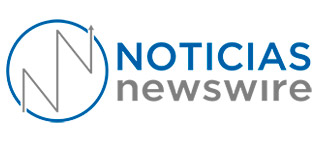MANASSAS, VA – April 3, 2018 – (HISPANICIZE WIRE) – Yvonne Llanes remembers vividly the day that light returned to her life.
For almost 10 years, she had been living in a dark world. Left without both of her legs after a freak accident in 2005, she tried desperately to show a valiant front for her four children as she moved around in a wheelchair.
“I wanted them to believe I was strong. But I wasn’t. Inside I was dying,” said Llanes, 49, of San Antonio. “I wanted my life back. I wanted my legs back.”
Even with more than 2 million amputees in the United States, many misconceptions exist around limb loss, including those held by amputees like Llanes who are not aware of the resources available to help them regain mobility and independence.
Limb Loss Awareness Month, in April, aims to educate the public about limb loss prevention and celebrate the resilience in the limb loss community. Leading the effort is the Amputee Coalition, the national nonprofit patient advocacy organization based in Manassas.
“Our goal is to ensure that no one feels alone, whether someone is facing an amputation, dealing with dramatic live changes for their family, or is further down the road in their journey post-limb loss,” said Jack Richmond, president and chief executive officer of the Amputee Coalition.
Uniting peers
Critical to recovering from limb loss is peer mentoring. For Llanes, finding an inspiring amputee was a life changer.
In 2015, she went to a doctor’s appointment and connected with fellow amputee Mona Patel in the waiting room. Patel, who underwent a single-leg amputation after a car accident, used a prosthesis.
Patel, the founder of the San Antonio Amputee Support Group, could see Llanes’ pain — and her strength. She told Llanes of a boot camp that would help her walk again and challenged her to attend.
On June 20, 2015, Llanes became a full-time prosthesis user, pushing aside the wheelchair that she associated with limitations. “Life is beautiful now that I am up and walking,” she said. “It has totally changed my life.”
Patel, named a 2017 CNN Hero, has conducted hundreds of peer-to-peer meetings and encounters misconceptions daily. At one time, even she believed that she would not be able to easily care for children, until another amputee pulled her aside to reassure her.
“Once we lose a part of our body, there are so many questions, and the power of peer support is tremendously invaluable,” Patel said.
The Amputee Coalition coordinates with more than 300 support groups and over 1,000 peer visitors across the country.
Fighting misconceptions
Amputees also need guidance in understanding issues related to insurance access to prosthetic and custom orthotic devices. The Amputee Coalition has long been fighting to ensure that prostheses are treated the same as other basic, essential care within individual insurance plans.
Richmond said amputees and caregivers often believe insurance covers the cost of prostheses. That’s not always the case.
“Arms and legs are not a luxury and should not be treated as such,” he said.
The lack of access to prostheses prevents amputees from living productive lives, increasing the risk for dangerous and costly secondary conditions such as obesity, cardiovascular disease and additional amputation.
For people like Llanes, access to prostheses makes all the difference in the world.
For more information about limb loss, please call 888-267-5669 or visit amputee-coalition.org.


